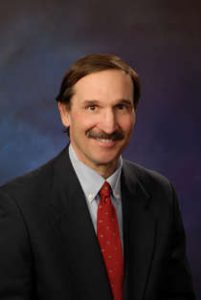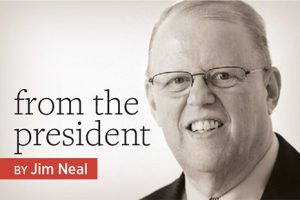 ALA president Jim Neal has announced the formation of a A new Task Force on Sustainability in order to help increase implementation of sustainable practices by the Association, the profession, libraries, and their communities.
ALA president Jim Neal has announced the formation of a A new Task Force on Sustainability in order to help increase implementation of sustainable practices by the Association, the profession, libraries, and their communities.
American Libraries Blog Series on Sustainability in Libraries
Beginning in April 2017, “American Libraries” magazine has been publishing an excellent series of online articles on the theme Sustainability in Libraries.
Take a look at the thought provoking articles that have been published so far in this series: https://americanlibrariesmagazine.org/tag/sustainability-in-libraries/
- Libraries & Sustainable Thinking, April 20, 2017).
- Sustainability’s Community of Practice, May 10, 2017).
- Sustainability on the Other Side of the Stacks, Amy Brunvand (May 22, 2017).
- Strengthening the Voice for Sustainability, Kellie Sparks (May 31, 2017).
Triple Bottom Line Sustainability, Gary Shaffer (June 15, 2017). - Sustainability in Public Libraries, Arlene Hopkins and Stephen Maack (June 23, 2017).
- Degrowth Is Coming, Edgardo Civallero (August 4, 2017).
- Campus Sustainability through Information Literacy, Raymond Pun (September 12, 2017).
Free SustainRT Membership for Students!
The ALA Sustainability Round Table (SustainRT) is pleased to announce free memberships for LIS students!
Beginning September 1, 2017, students may join SustainRT for free. To qualify for a free membership, students must be:
- Currently enrolled in ALA-accredited Master of Library Science/Master of Library and Information Science (MLS/MLIS) program.
- Student members of ALA.
SustainRT strives to achieve a more equitable, healthy and economically viable society by providing resources for the library community to support sustainability through curriculum development; collections; exhibits; events; advocacy, communication, library buildings and space design. SustainRT is a member of the ALA’s recently formed Office of Diversity, Literacy and Outreach Services (ODLOS) which supports library and information science workers in creating responsible and all-inclusive spaces that serve and represent the entire community.
Membership affords ample leadership opportunities to infuse sustainability throughout the library profession.
Inquiries may be directed to Madeleine Charney, Chair, SustainRT Membership Committee mcharney [at] library.umass.edu
Upcoming webinar: Transformational Resilience
View the recorded program on the ALA SustainRT YouTube Channel
Please join us for our next SustainRT webinar on Thursday, 6/8/17 from 12:15-12:45 PM (Eastern).
Bob Doppelt will speak to us on the topic, “Transformational Resilience: How Building Human Resilience to Climate Disruption Can Safeguard Society and Increase Well-being.”
About our presenter:
Bob Doppelt is Executive Director of The Resource Innovation Group (TRIG), a non-partisan social science-based sustainability and global climate change education, research and technical assistance organization affiliated with the Center for Sustainable Communities at Willamette University, where he is also a Senior Fellow. In addition, Bob is an adjunct faculty member in the Department of Planning, Public Policy and Management at the University of Oregon where he teaches systems thinking and global warming policy. He has also taught at the Presidio Graduate School in San Francisco and the Bainbridge Graduate Institute on sustainable management.
Bob is the author of Leading Change toward Sustainability: A Change Management Guide for Business, Government, and Civil Society (Greenleaf Publishing, 2003), The Power of Sustainable Thinking: How To Create a Positive Future for the Climate, The Planet, Your Organization and Your Life, (Earthscan Publishing, 2008) and Transformational Resilience: How to Use Climate Change and Related Adversities to Learn, Grow and Thrive (Greenleaf Publishing, 2016). He also writes regular columns on global warming for the Eugene Register-Guard and the Salem Statesman-Journal newspapers and is a frequent speaker at workshops and conferences in the U.S. and Europe.
Check out his website here.
Conference Report: Libraries and Archives in the Anthropocene
May 13-14, NYU
By Amy Brunvand
It may be that when we no longer know what to do, we have come to our real work. –Wendell Berry
At the recent Libraries and Archives in the Anthropocene Colloquium held at New York University (LAAC17 for short), Hurricane Sandy was on the minds of many Librarians. They weren’t just worried about how to protect valuable collections from rising sea levels, they were also developing ideas about how libraries could help people in disaster zones. If the library-of-the-future is a community center, the thinking went, then librarians need to think long and hard about how to serve communities caught in the crisis of global climate change.
The “Anthropocene,” in case you aren’t up on geological technical jargon, refers to a global layer of sediment deposited by human activity, a deep-time marker of what Elizabeth Kolbert calls “The Sixth Extinction” (2014). The idea has become a potent metaphor for a world where human beings are a geological force of deposition and erosion, though let’s be clear, human influence doesn’t put people in the driver’s seat. The reason we need a concept like sustainability is because the terrifying alternative is systems collapse.
So the experience of attending LAAC17 was a little bit like combining a librarians’ conference with a speculative science fiction novel. In fact, the keynote delivered by Roy Scranton cited various works of science fiction in order to consider possible Anthropocene futures. Scranton is the author of “Learning to Die in the Anthropocene: Reflections on the End of a Civilization” (2015), which I have not yet read, but it’s going straight to the top of my list.
Library collections are also metaphors for the Anthropocene as librarians struggle to both preserve information about a vanishing past and to support generation of new knowledge to cope with an uncertain future. The fragility of the electrical grid is worrisome, and yet a large-scale digital library like Hathi Trust is packed with information about pre-digital, regionally appropriate ways of doing things. Rick Prelinger, curator of the eponymous Prelinger Library, sparked discussion with his talk on Collecting Strategies for the Anthropocene. “We exist to oppose presentism,” he said, noting that “appraisal decisions often look short-sighted a few years after they are made.” But he added that social action often results from erasures that we hope to repair.
Social action was the theme of Saturday’s field trip to the Interference Archive, an open stacks collection in Brooklyn that holds materials created by people working for social transformation in order to encourage creative engagement with history and current struggles. The website notes, “We consider the use of our collection to be a way of preserving and honoring histories and material culture that is often marginalized in mainstream institutions. All members of our community are welcome and encouraged to shape our collection and programming.” Perhaps other archives could adopt this kind of community-driven mission.
Still, there must be a balance between access and preservation. Recently librarians like Laurie Allen have been involved in data rescue, rushing to save U.S. government data on climate change before it is “disappeared” by the Trump administration. Nonetheless, public involvement can nudge policy in the right direction and law librarian Sarah Lamdan discussed ways to help people access environmental information from government sources and take advantage of legally required public comment periods.
Resilience and adaptation are two concepts deeply connected to a sense of place, and scholars in the Environmental Humanities are breaking new ground in our understanding of what it means to live in place. Indeed, many of the presentations on place-based themes crossed the boundary from librarianship to art. The Next Epoch Seed Library documents weedy urban lots; the trees needed to print Future Library 2114 have only just been planted; The Library of Approximate Locations examines our relationships to natural resources; and GHG.EARH makes the sound of climate change.
And of course, there are the traditional library responses of programming, collections, displays, and reference help to connect people with essential information. At coffee breaks and over dinner I heard many participants say how relieved they felt to be among like-minded people. A dominant story of the future of libraries has been about consolidation, deaccessioning and the rise of big, shiny technology (one group of presenters got a big laugh by deriding a list of buzzwords from the Center for the Future of Libraries as a “library conference bingo”). But at LAAC17 the core question was, what it would mean to if we truly believe that libraries are symptoms of democracy and civilization? Amanda Avery suggested “steampunk” as a word to describe the fusion of high/low tech that defines libraries for the Anthropocene. Robots? How about people. Digital natives? How about indigenous knowledge. Maker movement? How about re-skilling. Gamification? How about writing your own story. Anonymity? How about community.
Libraries and Archives in the Anthropocene: A Colloquium was hosted by projectARCC and Litwin Books, LLC at NYU, May 13-14, 2017. Many thanks to the planning committee: Casey E. Davis Kaufman, Madeleine Charney and Rory Litwin. The event was live-streamed, and presentations are available to view online at https://www.facebook.com/events/638779516326338/
Monique le Conge Ziesenhenne – Candidate for PLA President
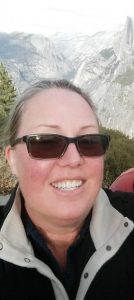
Working at the City of Palo Alto, where we have an Office of Sustainability (http://www.cityofpaloalto.
Why do I mention this about my workplace? For me, sustainability has become an internal and external value, part of who we all are as library workers, as green leaders, and as part of our communities. Libraries are the ultimate tool for sustainability – not only can we educate our communities and model sustainable practices, as we incorporate these practices into our daily work, we become ambassadors. I know that this carries itself forward into how I approach problem solving, strategy development, and resource allocation. This is true not only for my daily work, but my participation in PLA. I feel that this is an area that continues to grow and one where PLA can position to be a leader.
More than this, sustainability is about how public libraries can continue to function as the vital community education and workforce resource they are. In most communities, the public library offers a neutral space for pursuing truth and making citizenship in all its forms available. PLA will continue to emphasize the value this brings to communities and, with my background and experience, will ensure that sustainability is just as much a part of the culture as it is where I work every day. I encourage you to do the same – participate in the election and make your priorities known.
Thank you for your work and your dedication to this important issue. I welcome any comments or questions!
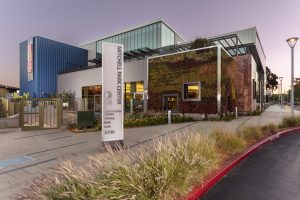
Susan Conlon – Candidate for Member-at-Large
Dear SustainRT Members,
My name is Susan Conlon and I am candidate for Member-at-Large of SustainRT, and I hope you will consider electing me to this position. It would be my honor to serve to make a contribution to its core objective to “exchange ideas and opportunities regarding sustainability in order to move toward a more equitable, healthy and economically viable society.”
First and foremost professionally I am the Head of Youth Services at the Princeton Public Library in New Jersey and I love my job. It’s a welcoming and shared public space connecting a diverse, international and vibrant small university town with a place for people of all ages to gather, explore, learn, and play.
Combining my passions – being an advocate for social and youth justice, film fanatic and promoter of sustainability for the planet – with the opportunity to work in an organization that values collaboration between departments and thinking outside the box, I founded the Princeton Environmental Film Festival in 2003, and I’ve have been leading it since. It has grown to become one of the library’s signature annual programs and its commitment to advancing environmental literacy.
Creating and renewing the festival each year illustrates why I think I’d be a good addition to SustainRT as a Member-at-Large. I have a proven track record of working with people, engaging and involving the community, and identifying, imagining, and implementing a unique way for libraries to be vital institutional leaders in environmental sustainability.
The content of the festival crosses over and intersects with many platforms, from film, to literature, science, art, poetry and even fashion – our “Trashion Show” featuring youth wearing their creative designs crafted from recycled materials they proudly walked red-carpet style was a huge hit.
You can view the festival website and get a preview of the films in our upcoming event starting March 27 at www.princetonlibrary.org/peff.
Here’s a bit more on my background:
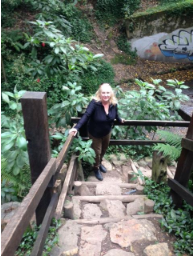 I graduated from Rutgers University where I studied English and Art and returned later when my three children were in school to get my MLS.
I graduated from Rutgers University where I studied English and Art and returned later when my three children were in school to get my MLS.
I am crazy about books, dogs, movies, and spending time in cities and the natural world. While libraries are my favorite shared built-spaces, my love for two places in the natural and outside world were shared with me and nurtured by my parents; my city-born and raised father and I discovered trees and a quest to learn about their unique identities; and my mom, whom I suspect was part-porpoise, grew up in a small town on the Jersey shore, where she lured me into the ocean to swim and made me love big waves.
~ Susan
Scott Walter – Candidate for ALA President
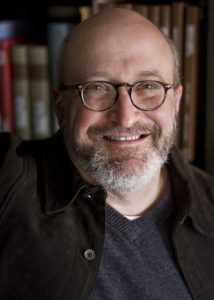 Thank you for the opportunity to share some thoughts about the Sustainability RT and the importance of its work today.
Thank you for the opportunity to share some thoughts about the Sustainability RT and the importance of its work today.
I was a member of ALA Council in 2015 when we passed the “Resolution on the Importance of Sustainable Libraries,” and I was happy to support it. At the time, I associated the idea of sustainability in libraries with green building, sustainable business practices, and, maybe, the idea that our move to a greater and greater reliance on digital content and information technology might be contributing to concerns such as use of electricity, e-waste, etc. It is fair to say that my appreciation for the importance of this resolution was not as expansive as it is today, but, also to be fair, we are living in a different world.
To me, the heart of this resolution is the idea that “libraries are uniquely positioned and essential to build the capacity of the communities they serve to be sustainable, resilient, and regenerative,” and the need for libraries to play that role has never been as important as it is today. I think it is telling that the Sustainability Round Table clearly drew on this vision for the role of libraries in communities in its January 2017 statement about our current situation when it focused not just on the environmental impact of the directions signaled by the new Administration, but on the way librarians work with their communities “to build community resilience as we all face an uncertain future together.”
That future has only become more uncertain in the weeks since that statement was made, and, as I write this, the Trump Administration has just released a proposed budget that decimates our capacity, as a society, to support the arts, libraries, museums, public education, and the basic and applied science critical to a sustainable future. Librarians can, and must, not only model sustainable practices in their work, and provide the information services and educational programs that will help to spread broader awareness of how to pursue a sustainable future for one’s self and our planet, but we must radically expand our vision of the library’s role in building a resilient community, whether that community is a school, a town, a city, or a college. In a world where senior government officials question the scientific consensus around issues such as global warming and climate change, the mandate to expand our educational and advocacy role around sustainability is clear.
Here at home, we have a great example of a library making a commitment to sustainability in Chicago Public Library. In 2012, the Urban Libraries Council recognized the work that CPL had done to “[make] green routine,” in its buildings and its business practices. More recently, CPL has collaborated with Hive Chicago to promote “The Sustainability Hack” an education and outreach program aimed at young adults. What this tells us is that the library has powerful partners in the community who want to help us not only to pursue sustainability in our work, but to be part of broader discussions of how we promote a sustainability mindset among our kids and our communities. As an academic librarian, this points the way to new thinking about the “value of the academic library,” and the ways in which it can contribute to mission-centered commitments to sustainability, such as, in my case, the DePaul Sustainability Network.
There is one final lesson that I took from the sustainability resolution, and that is the importance of energizing the connection between ALA Chapters and Big ALA. The Council of the New York Library Association passed its resolution on sustainability in 2014, and the launch of the NYLA Sustainability Initiative is inspiring. Throughout this election, I have stressed the capacity that ALA has to energize a national, grassroots effort that engages our members at the local, state, and national levels, and the events of the past 7 weeks have only further demonstrated how important that is. Sustainability is one policy area where we have a great example of how that can be done, and we should build on it.
I have made a commitment throughout my campaign to focus our efforts as an Association on the critical challenges before us, and empower our Association and its members to play the leading role they must in defense of our core values, and our rights and responsibilities as information professionals and community members. I hope you’ll take the opportunity to learn more about me and about my candidacy at (walter4ala.org), and I would welcome your support.
There is important work for us to do, and, with your vote, we can do it together
Sara Dallas – Candidate for PLA President
- Leadership and Transformation through professional orientation from internal to outward towards the community,
- Literate Nation in the area of sustainable and resilient public libraries, and
- Organizational Excellence – to develop tools and resources to education PLA members, the PLA Board and PLA staff on the importance of Sustainability. (PLA Strategic Plan, June 2014).
Candidate for ALA President – Terri Grief
Thank you for the opportunity to post on the Sustainability Roundtable blog.
Librarians are leaders in knowledge dissemination and have a battle ahead of us with the current administration. The actions that the Trump administration has taken in only 50 days are threatening the very idea of environmental protection. First, the action that they took against the National Park Service to deny climate change was outrageous. That action was followed quickly by removing all mention of climate change from the whitehouse.gov website. The EPA was instructed to remove all information about climate change from their website. Then, unbelievably, Scott Pruitt, a man who has sued the EPA 14 times, was appointed as the head of the EPA. The future for our environment is bleak under this administration.
For these reasons, we must be even more dedicated to keeping knowledge available for our citizens. This roundtable must be a source for the rest of the association and, if I am elected as president, I will look to you for guidance and authority.
Your mission is reflected in my campaign platform. You can read more about it at www.grief4alapresident.com . There are three main strands in my platform: Strengthening Relationships, Empowering Communities, and Uniting Voices. We must strengthen relationships within ALA and with those stakeholders in the outside community. We must join with others to keep information free and available to our students and patrons. Now, more than ever, we have to continue to fight the good fight. This will empower our communities in ways that will benefit not only the present generations, but the generations that follow. We must speak with one loud and strong voice that what libraries do matter to the good of the society. We must be diligent.
It is critical that we work together to keep sustainability at the forefront of our legislators. I come from a coal state where some people see the environmental concerns as an opposition to their income. Sen. Mitch McConnell is an outspoken detractor for the environment and I am appalled by his actions. We can not idly stand by and let this administration discount science and facts for they perceive as economic gain.
Thank you for your work and dedication. I look forward to working with you.
